(Because of lots of nice pictures of book covers, this post is too long for some email programs. Click through to the online version to make sure to see all of the wonderful content.)
I saw the title of the New York Times article below and (metaphorically) cracked my knuckles over the keyboard in preparation for the future newsletter I would be writing about how lame their choices were.
Imagine my surprise - and tinge of disappointment mixed with delight - when the list of funny novels since 1961 (the year of Catch-22’s publication) was actually quite excellent.
Seeing the first entry, Charles Wright’s The Wig, was a bit of a shock since Wright (not the well-known poet, but a different writer entirely) has at best a cult following. Even the reissue of his three novels in a collected edition in 2019 didn’t seem to move the needle much, as it looks to me like it’s out-of-print. Fortunately for Wright, he has a fan in longtime Times book critic Dwight Garner, who is responsible for his inclusion on the list.
There’s a number of other welcome surprises : Fran Ross’s Oreo, which is truly one-of-a-kind, and the only novel Ross wrote. Mrs. Caliban by Rachel Ingalls is present. They managed to select the funniest of Percival Everett’s comedic works, I Am Not Sidney Poitier. Lightning Rods by Helen DeWitt has a lunatic premise - women will be employed to have consensual sex on demand inside America’s corporations in order to cut down on sexual harassment - with even more delightful execution. The Sellout by Paul Beatty is probably my most recommended book in the history of my Chicago Tribune column.
There’s very few, if any, selections that I could truly gainsay. Sure, there’s a couple that seem de rigueur - Portnoy’s Complaint and Bridget Jones’ Diary - but you can’t say they aren’t funny.
The inclusion of American Psycho is the one I look at a little sideways. Yes, it is a “satire” and there is a humor present in the novel, but I don’t remember really laughing at it, per se. I suppose you could say the same of huge swaths of Catch-22 for that matter.
Nonetheless, well done New York Times.
Still, there’s a lot of very funny novels they managed to leave out, as is inevitable when considering a list of 22 books spanning more than 40 years. Consider the following recommendations of more funny novels published since 1961 a friendly addendum.
dem by William Melvin Kelley (1967)
Kelley’s story isn’t too different from Charles Wright’s: a writer moves to New York City, produces a handful of unique novels to critical acclaim but so-so sales, is forgotten for a time before being reprinted well after his passing. A Different Drummer, which I read as a kind of companion to the works of William Faulkner, is Kelley’s best known and most straightforward book. dem was Kelley’s second to last novel published and is the story of a white advertising executive whose wife gives birth to a Black child that is not a product of an affair. You’ll have to read the book for yourself to see how that gets worked out.
True Grit by Charles Portis (1968)
I’m sure many have seen one (or both) of the very good film adaptations, but there is something about the voice of young Mattie Ross narrating this novel in fifty-years retrospection about the avenging of her father’s death that is undeniably its own experience. I’ve had people tell me they didn’t get that this book is all that funny, but then I tell them to read the book out loud and they’ll see. There’s just something about the cadence to Mattie’s telling that Portis captures that makes it work.
The Water Method Man by John Irving (1972)
This is Irving’s second novel, decently admired at the time of its publication, but not widely read. It wasn’t until Irving’s fourth book (The World According to Garp) that he became a contender for the “great American novelist” of his era. Told in alternating first (present tense) and third person (past tense) chapters, this is the story of Fred “Bogus” Trumper. In the present tense he is a man with a crooked urinary tract - which is treated by drinking lots of water, hence the title - a pregnant girlfriend, and a job working for an experimental filmmaker. Present tense Trumper mostly has his stuff together, though given what we find out about his past in the third person chapters, this could fly apart at any moment. In the past we find out about Trumper’s wooing of U.S. skiing star, Sue “Biggie” Kunft, his time in Austria with the eccentric Merril Overstreet, and the subsequent attempt at making a life with Biggie and their child when he is a graduate student in “Old Low Norse” at the University of Iowa. One of the great WMFUN’s of all time, there is a set piece in which Bogus is trying to learn to ski that makes me weep with laughter. I have an extra soft spot for this book because I stole the first/present, third/past structure for my own novel, The Funny Man.
The Hitchhiker’s Guide to the Galaxy by Douglas Adams (1979)
I read this as a youngster and would’ve told you it was the greatest book ever. I re-read it maybe seven or eight years ago and I think it holds up quite well. Overtly absurdist and comic, it smuggles in a little wisdom about living a contented life too. The answer is 42.
Home Land by Sam Lipsyte (2005)
I read this book on a plane and laughed so hard I got stares, but I didn’t care. Written in the form of updates to his high school alumni newsletter, this is the story of Lewis “Teabag” Miner, whose life “didn’t pan out.” Sometimes profane and gross, but also oddly sympathetic, this is a novel that if you take to the humor, it’s a favorite. If you don’t, you may find it, as n the words of a Publishers Weekly reviewer, “unpleasant.”
A Gate at the Stairs by Lorrie Moore (2009)
Lots of Moore’s work is funny because she traffics in wordplay and imbues her characters with that same skill. There’s an artifice to Moore’s method that nonetheless doesn’t come across as phony or showy. That virtue is on display here in the character of Tassie who has literally left the farm to go to college in a big university town where she also finds work as a nanny. A coming-of-age novel with sound emotional resonance in addition to Moore’s wry humor.
Juice! by Ishmael Reed (2011)
Reed uses his character, Paul Blessings (a political cartoonist who is fed up with the world) as a kind of amanuensis for Reed’s own rants, commentaries, and vivisections of American political and popular culture, using the arrest and trial of O.J. Simpson as a touchstone. Reed’s work is famously “difficult” because of his off-the-charts erudition and disdain for linear storytelling, but you don’t have to “get” every last reference and allusion to appreciate the unique energy of his work. He’s one of the great geniuses of American Literature.
Where’d You Go Bernadette by Maria Semple (2012)
Bernadette is living in Seattle in the shadow of Microsoft with her husband (who works at the Tech giant) and daughter Bee, who has gotten all A’s and is ready to cash in the prize she was given as an incentive, a trip to Antarctica. Bernadette disappears and Bee goes looking. The story unfolds from their alternating perspectives. I’ve heard some readers complain that Bernadette is “unlikable” but this merely shows the shortcomings of judging narrators on their likeability. Laugh out loud funny at times, but also has its emotionally touching moments.
Honorable mentions that I could easily list if not for lack of space and time: My Sister the Serial Killer, Dr. No, Dear Committee Members, Small World, My Search for Warren Harding, Confederacy of Dunces, A Fan’s Notes, The Bear Went Over the Mountain, The Kings of Infinite Space, Mister Monkey, Big Swiss..
Tell me, what have the New York Times and I missed?
Links
This week at the Chicago Tribune I look at the recently released Literary Theory for Robots by Dennis Yi Tenen
The Atlantic released a list of 136 “great American novels” of the last 100 years. At his newsletter,
argues that ignoring short stories leaves out an important, and unique aspect of American literature.It looks like my friend (and one-time The Biblioracle Recommends contributor), Teddy Wayne, is going to have his next novel, The Winner, turned into a movie.
The New York Times has 27 works of fiction and 17 of nonfiction that they’re talking about this spring.
Nicole Chung writing at Esquire has the “best memoirs of the year (so far).”
Maris Kreizman explains why turning editorial and marketing staff at publishers into gig workers is “bad for everybody.” I agree. in my experience people do their best work under conditions of reasonable freedom and security, rather than surveillance and precarity.
From Amanda Lehr, writing at McSweeney’s, and in honor of the holiday: “Famous Works of Irish Literature as Limericks.”
Recommendations
1. Transcendent Kingdom by Yaa Gyasi
2. The Vanishing Half by Brit Bennett
3. Demon Copperhead by Barbara Kingsolver
4. Can't Hurt Me: Master Your Mind and Defy the Odds by David Goggins
5. Tomorrow, and Tomorrow, and Tomorrow by Gabrielle Zevin
Matt S - Philadelphia, PA
The Turner House by Angela Flournoy is a great family story that manages to also get a little spooky. I feel like it’s a good fit for Eric.
1. Canoeing with the Cree by Eric Sevareid
2. Mary Poppins Opens the Door by P. L. Travers
3. Foreign Affairs by Alison Lurie
4. All the Beauty in the World by Patrick Bringley
5. Gonzalez & Daughter Trucking Company by María Amparo Escandón
Kathryn M. - Madison, WI
How about a nice coming of age novel with more than it’s share of wit: Dear Fang, With Love by Rufi Thorpe.
1. We Are Too Many by Hannah Pittard
2. Orion and the Dark by Emma Yarlett
3. Cold Crematorium: Reporting from the Land of Auschwitz by Jozsef Debreczeni
4. Palestine by Joe Sacco
5. The Nursery by Szilvia Molna
Eric M. - Brooklyn, NY
If Eric hasn’t yet read W.G. Sebald’s Austerlitz, he should.1
Somehow the stupid book(TM) has already been returned to me by my intrepid and clearly hardworking editor. The last phase was revisions. Now we’re on to edits (and after that, copyedits). This is the phase where I have to really slow down and concentrate on the task so as not to get ahead of myself just so I can say it's “done.”
I get a week for this part of the task, so while my intention is to come to you via this channel next weekend, if you don’t hear from me, you’ll know where I am.
Don’t forget to tell me your favorite funny novels. I’m always on the lookout for books I don’t know, and you guys really delivered with the dog books from a couple weeks ago.
Take care,
John
The Biblioracle
All books (with the occasional exception) linked throughout the newsletter go to The Biblioracle Recommends bookstore at Bookshop.org. Affiliate proceeds, plus a personal matching donation of my own, go to Chicago’s Open Books and an additional reading/writing/literacy nonprofit to be determined. Affiliate income for this year is $36.60.

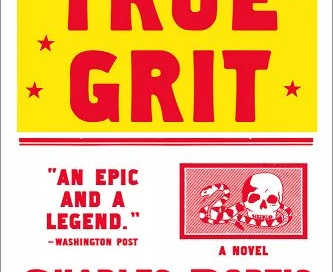


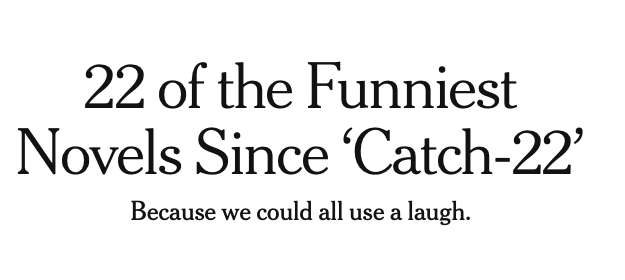
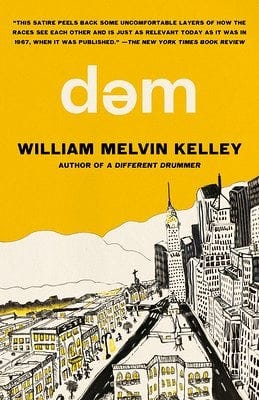

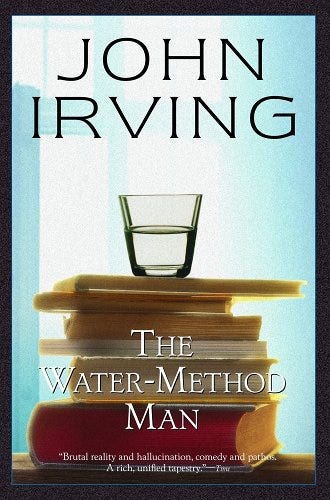


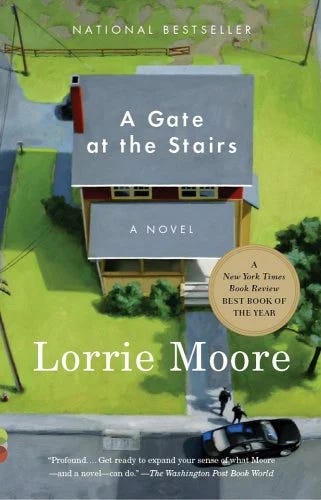
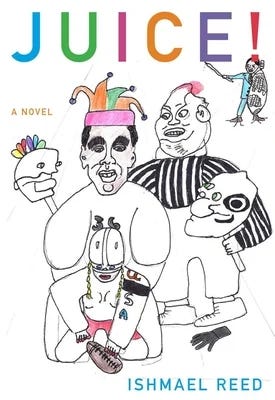

"Straight Man" by Richard Russo is the funniest novel I have ever read.
Thank you for reminding me of 'Where'd You Go, Bernadette?' I loved it when I read it. I do forget what I've read after a while, so thank you for bringing this back!